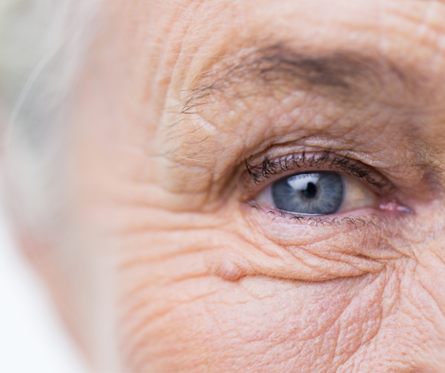Introduction
As we age, our eyes undergo changes that can affect our vision and overall quality of life. Senior vision care is crucial to maintaining independence and enjoying life to the fullest. In this blog, we’ll discuss how vision changes with age, common age-related eye conditions, and how LMC Optometry & Eye Care’s senior care services can help you or your loved ones maintain healthy vision.
How Vision Changes with Age
Aging affects various aspects of our health, including our eyes. Understanding these changes can help us take proactive steps to maintain good vision.
Presbyopia: The Aging Eye
One of the most common age-related vision changes is presbyopia. This condition makes it difficult to focus on close objects and typically starts in the early to mid-40s. Symptoms of presbyopia include difficulty reading small print, needing to hold reading material at arm’s length, headaches, and eyestrain. Reading glasses, bifocals, or progressive lenses in your frames can help. If you are a contact lens wearer, you can try multi-focal contacts.
Cataracts: Cloudy Vision
Cataracts are common in older adults and cause the lens of the eye to become cloudy, leading to blurry vision and difficulty with glare. Symptoms of cataracts include blurry vision, difficulty seeing at night, sensitivity to light, seeing halos around lights, and colors appearing faded. Cataract surgery is highly effective. At LMC Optometry & Eye Care, we provide comprehensive care before, during, and after surgery to ensure the best outcomes.
Glaucoma: Silent Thief of Sight
Glaucoma is a group of eye conditions that damage the optic nerve, often without noticeable symptoms until significant vision loss occurs. Symptoms of glaucoma include loss of peripheral vision, tunnel vision in advanced stages, eye pain, nausea and vomiting, and redness in the eye. Early detection and regular monitoring are crucial. Treatments include prescription eye drops, laser treatment, or surgery. LMC Optometry & Eye Care offers comprehensive glaucoma management.
Age-Related Macular Degeneration (AMD)
AMD affects the central part of the retina, leading to loss of central vision. It’s a leading cause of vision loss in older adults. Symptoms of AMD include blurred or wavy vision, difficulty recognizing faces, and dark or empty areas in the center of vision. While there is no cure, lifestyle changes and treatments can slow its progression. Our team at LMC Optometry & Eye Care can help manage AMD with personalized care plans.
Diabetic Retinopathy: Vision and Diabetes
Diabetic retinopathy is a complication of diabetes that affects the blood vessels in the retina, leading to vision changes. Symptoms of diabetic retinopathy include spots or dark strings floating in your vision, blurred vision, fluctuating vision, dark or empty areas in vision, and vision loss. Managing diabetes and regular eye exams are key. Treatments may include laser surgery or injections. LMC Optometry & Eye Care specializes in diabetic retinopathy care.
Dry Eye Syndrome in Seniors
Dry eyes are common among seniors due to reduced tear production. This condition can cause discomfort and affect daily activities. Symptoms of dry eye syndrome include redness, itching, a burning sensation, the feeling of something in the eye, and blurred vision. Treatment includes using artificial tears, taking breaks from screens, and sometimes medication. At LMC Optometry & Eye Care, we provide comprehensive dry eye treatments tailored to your needs.
The Importance of Regular Eye Exams for Seniors
Regular eye exams are crucial for detecting and managing age-related eye conditions early. These exams can help maintain vision health and prevent serious complications.
What to Expect During a Senior Eye Exam
During a senior eye exam, our optometrists will check for common age-related conditions, assess visual acuity, and evaluate overall eye health. We use advanced diagnostic tools to ensure thorough examinations.
Customized Care for Seniors at LMC Optometry & Eye Care
At LMC Optometry & Eye Care, we understand the unique needs of our senior patients. We offer personalized care plans to address specific vision concerns and improve quality of life.
Tips for Maintaining a Healthy Vision as You Age
Maintaining healthy vision involves regular eye exams, a healthy diet, protecting your eyes from UV light, and managing chronic conditions like diabetes and hypertension.
Supporting Senior Independence
Good vision is crucial for independence. Proper eye care can help seniors stay active, enjoy hobbies, and maintain their quality of life.
Prioritize Your Eye Health
Taking care of your eyes as you age is essential for maintaining independence and enjoying life. Regular eye exams and proper management of age-related conditions can make a significant difference. At LMC Optometry & Eye Care, we’re dedicated to providing comprehensive care for our senior patients. Schedule an appointment today and let us help you maintain healthy vision.



